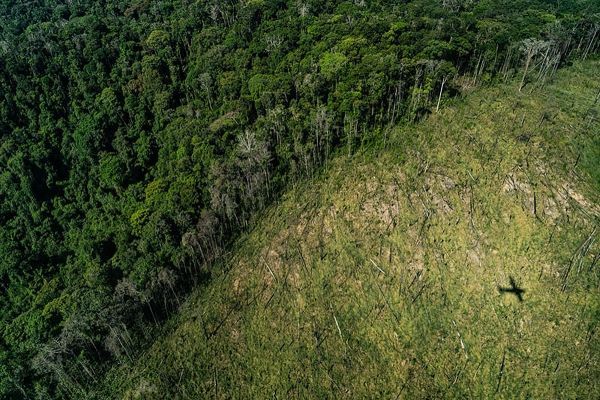As deforestation in the Brazilian Amazon soars under President Jair Bolsonaro, a new study warns that the regrowth of logged Amazon forests, and the amount of CO2 they store, is far less than previously believed.
The study, published in the journal Ecology, said that after 60 years of regrowth, the secondary Amazon forests studied by researchers stored only 40 percent as much carbon as undisturbed woodlands and had only half as much biodiversity. The study — conducted by scientists at the Federal University of Pará, the Brazilian Agricultural Research Corporation, and Lancaster University in the United Kingdom — also showed that secondary forests absorbed less carbon dioxide during droughts than undisturbed forests.
The scientists said it could take more than a century for the logged Amazon forests to begin sequestering as much CO2 as untouched forests and that the ability of these disturbed forests to store carbon dioxide may have been greatly overestimated. “We must be cautious about the ability of secondary forests to mitigate climate change,” said lead researcher Fernando Elias.
Read more at Yale Environment 360
Image: Cleared land in the Amazon in the Brazilian state of Pará in September 2019. FÁBIO NASCIMENTO / GREENPEACE


